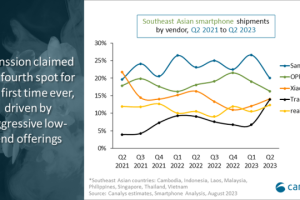·About 25% to 40% of those with endometriosis can become prone to infertility
·This is a symptom less condition, with severe cases being detected with a laparoscopy
Estimates indicate that infertility affects about 10% to 14% of the Indian population. More women are getting added to this increasing figure due to several reasons such as an unhealthy lifestyle and postponing conception to later years. While many risk factors and causes have been attributed to infertility, what many people may not be aware of is the fact that it is also one of the outcomes of a condition called endometriosis. It can damage the ovaries, Fallopian tubes and affect fertility in women.
Endometriosis occurs when a tissue which usually grows inside the uterus begins to grow outside of it in other areas of the body.It is found in women who are in their reproductive years, with diagnosis done usually during the 30s. About 25% to 40% of women with endometriosis stand the risk of infertility.
Speaking about this Dr Hrishikesh D Pai, Director IVF & Infertility at Fortis Bloom IVF Center, Delhi/Gurgaon & Former Secretary General of the Federation of Obstetrics and Gynecological Societies of India, said, “Although the exact reason for infertility in women with endometriosis is not known, research indicates that it may be due to a distorted pelvis anatomy, adhesions, scarred fallopian tubes, inflammation of the pelvic structures, altered immune system and peritoneal function, endocrine and ovulatory abnormalities, altered hormonal environment of the eggs, impaired implantation of a pregnancy, and altered egg quality.Moderate-to-severe endometriosis can reduce the chances of natural conception in women due to an increase in adhesions that can trap the egg and stop it from moving down the Fallopian tube.”
Symptoms other than infertility include discomfort before and during menses, pain during intercourse, pain or other abnormalities with urination or bowel movements around the time of menses break through, and fatigue. However, about 15% to 20% of the women with endometriosis do not show any specific symptoms.
“Laparoscopy is one of the first therapies for endometriosis-related infertility”, according to Dr Nandita Palshetkar, Director IVF & Infertility at Fortis Bloom IVF Center, Delhi/Gurgaon & President-elect, Federation of Obstetrics and Gynaecological Societies of India “In a laparoscopy, the endometrial patches are removed or vaporized to improve fertility in women with mild or minimal endometriosis. Although the process does not guarantee conception after surgery, there are other assisted reproductive techniques that come as a ray of hope for women with conditions such as these. One of these is in vitro fertilization (IVF), a method based on the combination of sperm and eggs in a laboratory to make an embryo.”
Hormonal therapies are avoided in those with endometriosis. Apart from this, it is also not advisable to perform multiple surgeries to remove cysts from the ovaries. This is because such an approach can reduce ovarian function and hamper the success of IVF. Although endometriosis cannot be prevented, long-term use of birth control pills can avoid the worsening of symptoms.
The following lifestyle changes can help reduce the chances of endometriosis by lowering estrogen levels.
- Body fat is known as secondary production site of estrogen. Exercising regularly can help decrease body fat.
- A diet high in fat influences the production of estrogen. Consume a diet rich in fruits, vegetables, and whole grains instead.
- Alcoholic drinks should be avoided as also drinks rich in caffeine. These may be limited to one per day.




























